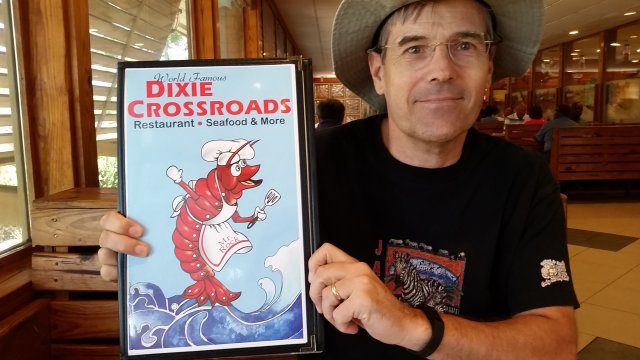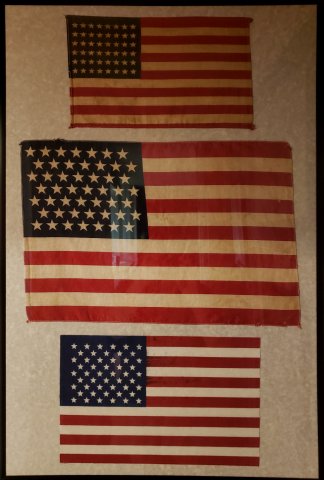It's 88 degrees outside at the moment, which is actually quite moderate for mid-day, mid-July in Florida. Still, it's ten degrees cooler inside, and that makes all the difference between enjoying my work and wanting to spend the day by (or in) the pool, drinking iced tea.
That increase in productivity I owe in large measure to one of America's great entrepreneurs, Willis Carrier, the "Father of Air Conditioning."
That this post appears today was prompted less by the temperature than by a new article by Eric Schultz' at The Occasional CEO (link is to the article), including an excerpt from his book, Innovation on Tap: Stories of Entrepreneurship from The Cotton Gin to Broadway's "Hamilton" (link is to my review of the book).
Successful entrepreneurship requires (among other traits) knowledge, skill, grit, determination, inventiveness, connection—and being in the right place at the right time. Lucky for us, Willis Carrier had them all, including the last, as you will see if you read the short story of how the Carrier Engineering Corporation opened for business at what looked for all the world like the worst possible time—and stepped into a golden opportunity that would have been impossible even a month later.
Permalink | Read 1275 times | Comments (3)
Category Random Musings: [first] [previous] [next] [newest] Everyday Life: [first] [previous] [next] [newest] Inspiration: [first] [previous] [next] [newest]
Despite My Rocky Relationship with Penzeys Spices, I hold no grudge against the Penzey's mugs I've acquired over the years.
Until one turned out to be an IED, that is. (Click to enlarge.)
It had given me no trouble whatsoever for years. Then one day I noticed the cup seemed exceptionally hot when I took it from the microwave. That should have been a clue. The next time I tried to warm up my tea was more exciting: Pieces of the cup exploded off with loud bangs, revealing rusty metal underneath.
The odd thing is, there had been no previous evidence of a problem. No worn spots, no places that looked thin. And who knew there was metal around the rim of the mug?
You never know what might be lurking in your cupboard.
Permalink | Read 1087 times | Comments (0)
Category Just for Fun: [first] [previous] [next] [newest]
One of our absolutely favorite local art museums is planning to expand, as explained in the following excerpt from a sign on their property. I've redacted the name of the museum, because we've always loved it and I'm certain they are not alone in their total loss of connection to the English language.
For nearly 21 years, the [Museum] has enriched our community with thought-provoking exhibitions. The future looks bright as we are now poised to add 40,000 square feet of enrichment opportunities; world-class exhibitions, innovative educational programs, and multi-purpose event spaces. This planned addition will make the museum a world-class destination experience.
The plan is inclusive, welcoming, and sustainable. With the open expansion, we will serve more in our community with a mission-driven building designed to seamlessly merge art, education, nature, dwell, respite, function, and form. We started with visionary ideas on how to make the museum more cohesive and increase public access and with [our architects'] brilliant partnership, the visionary has been put into action.
All of it is painful to read, but what on earth are we to make of, "designed to seamlessly merge art, education, nature, dwell, respite, function, and form"? Is it actually saying anything at all? And what could they possibly mean by "dwell" in this context?" Will the expansion contain apartments? Homeless shelters?
I love the museum, and have found its small size to be an advantage, not a drawback, forcing its exhibits to be focused and locally relevant. I hope the implementation of the expansion turns out to be better than the explanation.
Permalink | Read 1169 times | Comments (2)
Category Random Musings: [first] [previous] [next] [newest]
I have no illusions that many of my readers will watch this video. Maybe no one at all. It's two hours long, and few of us have two hours to spare for a YouTube video. It's a discussion of human trafficking among David Freiheit (Viva Frei), Robert Barnes, and their guest, Eliza Bleu, a trafficking survivor and advocate. I managed to listen to it all by taking it in small bites and multitasking. Lengthy or not, the topic is important. They don't even try to deal with the more nuanced issues, such as "sex workers" whose participation is really, truly, consensual, and "slave wages" that turn out to be a family's best hope of escaping poverty. They don't even take on "legitimate pornography."
Sadly, I think this is a wise approach, if they don't want to make the mistake abortion opponents made: in that debate, too many people insisted on all-or-nothing, refusing to accept compromises that would have allowed abortions for cases of rape, incest, and where the child is so deformed that he would suffer and die soon after birth anyway. That approach was logical, in a theoretical, ethical sense—but arguing over the rare exceptions resulted in the door for abortion being opened wide and far. In the case of human trafficking, there is more than enough horror on which everyone but the perpetrators can agree; let's focus on that.
The interview is interesting from beginning to end, though that is a very poor word to describe something that can only be endured through a certain numbness and keeping the whole topic at a deliberate distance. The beginning, where Eliza tells her own story, is most interesting, especially to homeschoolers. If you're looking for another reason to hate the big social media companies, there's plenty of fodder in the later part of the video.
I'm frustrated that video is the medium of choice for so much information, especially current stories. I read so very much faster than I can listen, even pushing the video to higher speeds. Plus, anything good that is written has been through at least minimal editing, whereas with interviews, podcasts, and live streams, every um, uh, and rabbit trail remains. I find the written word to be much more efficient, usually much more dense in terms of information conveyed. But sometimes the more personal touch that can come through in a video is valuable, too.
In any case, as our choir director has taught us, it is what it is, and sometimes you have to adapt. I put this out here, (1) so I can find it again, and (2) in the off chance that someone may find it enlightening.
Liberty is meaningless when the right to utter one’s thoughts and opinions has ceased to exist. That, of all rights, is the dread of tyrants. It is the right which they first of all strike down. They know its power. — Frederick Douglass, 1860
When I was in school, my history classes went mostly in one ear and out the other without pausing to impact my brain along the way. I'm not sure how all my teachers but one managed to make such a fascinating subject dull, but they did. At least to me; it may be that those who were already interested in the subject managed to thrive. Don't get the wrong impression: I never received a grade lower than an "A" in any of those courses—I just didn't remember much of anything past the final exam.
Therefore I can't necessarily say that I knew nothing about Frederick Douglass until I went to the University of Rochester, where I encountered him every day. Sort of. Our dining hall was in the Frederick Douglass Building. That alone was enough to make what I've learned about the man since then stay with me. The learning process is a strange thing.
I'm still learning more. I ran into the above quotation just this morning. Since it was a Facebook meme, I did some research to make sure that both the quote and the attribution were correct. They are. Douglass was speaking in response to an incident in Boston, when a mob, supported by the governing authorities, shut down an abolitionist meeting. The speech, along with a good explanation of the context, can be found here: Frederick Douglass's "Plea for Freedom of Speech in Boston". It's not long, and I strongly recommending reading it.
I'd rather end this post here. But, sadly, I feel the need to include a reminder that Douglass was also an advocate for women's rights. Too many people have now (sometimes deliberately) forgotten the days when "man" was the general term for human beings of either sex, much as "duck" is the general term for a particular type of waterfowl, both ducks (female) and drakes (male). I don't want anyone feeling negative about this excellent and important speech because of an unwarranted reaction to Douglass's final sentence: "A man’s right to speak does not depend upon where he was born or upon his color. The simple quality of manhood is the solid basis of the right—and there let it rest forever."
I LOVE the Independence Day parade and festivities in Geneva, Florida. I've written about it many times. We were small in numbers this year, but infinitely bigger than in 2020, when there was nothing at all. Thanks to Liz, our organizer and director-by-necessity, and to the good people of Geneva, marching in the parade was still a blast. The event organizers tell us that our antics are "one of the most frustrating things, and yet one of the things that the parade goers enjoy the most."
Thanks to the fact that the Fourth was a Sunday this year, Geneva's party was held a day early. And the federal holiday is a day late, so we enjoyed three days of festivities. Less happily, our neighbors have been making it a week-long holiday with their fireworks. It's a good thing the drought has broken.
The best part of the parade is interacting with the crowd, and hamming it up with my cymbals as we march along. Porter does the same with the water wagon (and its following shark). All it takes is a willingness to leave all pride and self-respect behind as the parade steps off.
I'll have to admit that the cymbals get heavier with every year, and running to catch up with the band—after letting a small spectator "help me out" by banging the cymbals—now leaves me a bit winded. It's a good thing Porter (aka Gunga Dad) is always ready with a drink to keep me hydrated!
The people of Geneva are always so warm, friendly, and encouraging. They love our country, their heritage, and their band. We didn't start in Geneva; 30 years ago we were the World's Worst Marching Band and played gigs not only in Central Florida but as far away as Atlanta and Philadelphia. Geneva at its worst couldn't outdo the heat of Atlanta's Independence Day parade, when Peachtree Street's pavement melted under our feet and (thanks to Gunga Dad) we were the only band not to have someone faint. But when the World's Worst Marching Band put itself out to pasture many years ago, Geneva welcomed us as their own.
One of the exhibits we checked out this year was a travelling exhibition of artwork created using wood from The Senator, our much-beloved and long-lamented bald cypress, which was the oldest in the world when it was destroyed by a careless drug user in 2012. I was expecting something tacky and touristy ("Get your gen-u-wine Senator key ring here!") but it was nothing of the sort. Rather, it was moving and respectful, telling the story of the tree and displaying beauty from ashes through art.
Are you shocked that Bill Cosby is now free? I was, but now that I know more about the circumstances, I'd be shocked if he weren't.
I'm not one to follow the high-profile prosecutions, especially of celebrities, that are so popular in the news media. I know I'm unusual in not having watched a single minute of the O. J. Simpson trial, for example. Call me weird, but I see no reason to put myself in the position of mentally convicting or acquitting the person being tried unless I'm actually on the jury and have all the legally relevant information.
It is, however, impossible to avoid all the publicity that comes with such trials, and Bill Cosby was familiar to me because of his comedy sketches when I was young. I had a few of his records. I still quote some of his lines, e.g. "Hey, you! Almost-a-doctor!" from the story of getting his tonsils out (15 minutes).
If anyone is shocked that I would publish one of Cosby's works "after what he did," I say that great works have been done by terrible people, and if we reject everything based on the sins of the workers in other areas of life, we won't have a whole lot left.
Be that as it may, the issue isn't Cosby's comedy but his trial, which was a long story, to which, as I said, I didn't pay much attention. When I heard that the Supreme Court of Pennsylvania had thrown out his conviction, my immediate, ignorant, reaction was, "another criminal released on a stupid technicality!"
Not exactly. Viva Frei explains it well here (14 minutes).
If you'd rather not watch the video, the short version, as I understand it—and I certainly don't claim to know the laws—is that the district attorney had decided that he did not have a strong enough case against Cosby to expect a conviction, and that by not pursuing a criminal trial he would make it more likely that the alleged victim would get justice in civil proceedings. Which apparently she did, thanks to the fact that Cosby, freed from the fear of prosecution, made some pretty damning confessions in the civil trial. However, when a new district attorney took over, he did not feel himself bound by his predecessor's decision, and went ahead and prosecuted Cosby, using his civil testimony against him, and thus obtained a conviction. Apparently "pleading the Fifth Amendment" is reserved for criminal cases, and one can be forced to self-incriminate in civil cases. Who knew? The trial court judge allowed this to happen, having decided that there was no "real" agreement between the former DA and Cosby that should tie their hands.
Here is a very small part of the Pennsylvania Supreme Court's decision:
Starting with D.A. Castor's inducement, Cosby gave up a fundamental constitutional right, was compelled to participate in a civil case after losing that right, testified against his own interests, weakened his position there and ultimately settled the case for a large sum of money, was tried twice in criminal court, was convicted, and has served several years in prison. All of this started with D. A. Castor's compulsion of Cosby's reliance upon a public proclamation that Cosby would not be prosecuted. ... There is only one remedy that can completely restore Cosby to the status quo ante. He must be discharged, and any future prosecution on these particular charges must be barred. ... A contrary result would be patently untenable. It would violate long-cherished principles of fundamental fairness. It would be antithetical to, and corrosive of, the integrity and functionality of the criminal justice system that we strive to maintain.
In other words, the end does not justify the means. A result cannot be just if it is obtained by cheating. As my attorney friend—who has served much time on both prosecution and defense—tells me, even the worst criminal deserves the benefit of the law. It's time to pull out A Man for All Seasons again (5 minutes).
Much as we might not like it, the same rights and rules that protect us also protect criminals. The First Amendment has the same "problem."
Permalink | Read 1281 times | Comments (1)
Category Random Musings: [first] [previous] [next] [newest]
Memes are today's proverbs: None is perfect for every situation, but good ones speak truth clearly and efficiently. This is a good one.
Permalink | Read 1085 times | Comments (0)
Category Random Musings: [first] [previous] [next] [newest]
I love sitting on our back porch in the early morning. It's usually dark when I come out, and at first my only company is the insects and the frogs. A little later I can often see the armadillo as he leaves his burrow and goes out on his explorations through a small hole in the fence. As dawn approaches the birds start to wake up. Most common are the Carolina wrens and the cardinals, though there are many more, including owls, hawks, crows, tufted titmice, and unidentified warblers. Soon squirrels are scampering through the trees and across the screened enclosure that covers the pool. If I ignore the traffic noises, the air conditioners, the pool pumps, and the neighbor behind us who gets up early and likes to smoke on his porch, it's a very peaceful time.
Today I went out at about 5:30, and I sat there listening, except for a five to ten minute period when I ducked inside to attend to something in the kitchen. When it was light, I started walking my customary laps around the pool. Shortly before seven o'clock, I heard a small noise from one of the trees, and looked up, expecting to see a squirrel.
Apparently we grow our squirrels on the large side here in Florida.
That photo was taken by our neighbor, Carol; we called them over despite the early hour, knowing how much they would want to see this visitor. The Florida black bear is not uncommon in the neighborhood, but we'd never seen one on our street, let alone in our yard. We're not as close to the bear as you might think; Carol was shooting with a 400 mm lens. The video below was taken with my cell phone and gives you a better sense of the geography of the situation.
At that point we decided it prudent to stand a bit closer to the door to the house, but after descending the tree, he (definitely confirmed to be a male) squeezed back through the hole he had created for himself (Porter's photo), and went on his way. We were lucky he didn't take down a whole section of the fence.
My question is this: Did the bear come into the yard and climb the tree during the short time I was back in the house? Or had he been comfortably ensconced on the branch the whole time I was sitting on the porch in the dark? I'm inclined to believe the former, because when I'm out there I'm listening for and sensitive to unusual noises. But he was amazingly quiet in his moves for something so large, and the idea that he was sitting there the whole time is something to ponder!
Permalink | Read 1136 times | Comments (0)
Category Everyday Life: [first] [previous] [next] [newest]
I love cooking shows. Most of them are on cable television, which we have never had and I hope will never feel the need to have, but they're a favorite of mine when available on long overseas flights. And then there's YouTube.
Ann Reardon's How to Cook That channel first caught my eye because of her "debunking" videos, in which she tries out and exposes too-good-to-be-true internet "hacks," mostly related to her specialty, food. Here's one (16 minutes).
And here's one for our daughter who has always loved miniatures (6.5 minutes). So has Ann, and in her "Teeny-Weeny Challenges" actually bakes in her miniature kitchen.
These are just some of the sidelights of her channel, however. Mostly she focusses on amazing desserts, and has recently published a cookbook called Crazy Sweet Creations. Here's a basic video on working with chocolate (13.5 minutes).
Are you hungry yet?
Most of Ann's creations are too complex to interest me in attempting them, but they are fun to watch, and I can pick up some interesting tips and tricks along the way.
Permalink | Read 1658 times | Comments (0)
Category Reviews: [first] [previous] [next] [newest] Food: [first] [previous] [next] [newest] Inspiration: [first] [previous] [next] [newest] YouTube Channel Discoveries: [first] [previous] [next] [newest]
Or 20 minutes to watch a video.
This feels more like a Japanese tea ceremony than baking.
Part 1 of the visit of our Swiss family is here, part 2 here.
At last, Christmas drew near, and we focussed our activities nearer home. Christmas Eve saw us in church, of course, with some of our guests pressed into service in our hand chime choir. Hand chimes are not nearly as beautiful as handbells, but they are what we had. We didn't even have a handbell choir until it emerged as a desperation move to give our choir a way to make music when rehearsing and singing were forbidden. In this we were oppressed, not by the state, but by our very own bishop, whose rules were far more draconian than the governments'. I had so looked forward to being able to share with our family the absolute beauty of our high church worship, especially on such a special day, but it was not allowed to be. Nonetheless, we were grateful to be permitted in-person services at all. We were there; God was there. And some of us went back later for the midnight mass.
 cropped.jpg)
.jpg)
.jpg)
Credit for the above three photos Anke Cirillo of Three Point Photography
And then it was Christmas! Happiness is a house full of family.
After Christmas we boldly got together with our long-time friend and former choir director for one of our spontaneous music-making sessions. It's impossible to describe what a glorious outpouring of joy there is in these events. I do have a few recordings I treasure, but out of respect for the true musicians who don't always appreciate having their impromptu experimentations broadcast to the world, I'll leave it to your imagination. We had singing, piano, harmonica, viola, recorder, hand chimes, and all manner of percussion. If I could do this every night I know my mental state would take a drastic turn for the better. And the interaction between me on the tambourine and our granddaughter on the maracas was pretty good physical exercise, too.
We visited several playgrounds and natural parks, including taking the Black Point Wildlife Drive on the east coast. It's a favorite of ours, and a lovely place to see birds. On this trip, however, the more exciting views were of another sort:
And what's a trip to that part of the state without a stop at the Dixie Crossroads restaurant?
We continued to enjoy our final days of this visit, trying not to think too much about the upcoming long trip to Miami and the even longer trip across the Atlantic. And the 10-day quarantine awaiting them back in Switzerland. But they survived all that without catching COVID-19, and so did we. We are so grateful to Florida for welcoming our overseas family, to Switzerland for letting them come (and return), and to all whose efforts made this visit possible. I hadn't fully realized the toll these pandemic restrictions had taken on our mental health until we were reminded of what we were missing. I believe this visit came just in time, and I'm so glad we made the joyful choice.
This December visit seems more than six months distant, given that January and February brought us vaccines and the beginning of more freedom, at least in Florida. It would be April before the Northeast opened up enough for another healing family visit ... and that's a story for another post.
Permalink | Read 3954 times | Comments (0)
Category Hurricanes and Such: [first] [previous] [next] [newest] Health: [first] [previous] [next] [newest] Politics: [first] [previous] [next] [newest] Children & Family Issues: [first] [previous] [next] [newest] Everyday Life: [first] [previous] [next] [newest]
Permalink | Read 1028 times | Comments (0)
Category Everyday Life: [first] [previous] [next] [newest]
Since it changed hands, I haven't found the Babylon Bee as interesting as it used to be. Or maybe Facebook has only been showing me their worst efforts recently; sometimes I think Facebook is a conspiracy theory dream all by itself.
In any case, this one is funny on more than one level. Be sure to watch to the end; it's only two minutes long.
Permalink | Read 1036 times | Comments (0)
Category Hurricanes and Such: [first] [previous] [next] [newest] Just for Fun: [first] [previous] [next] [newest]
Butterflies don't look back at the caterpillar with shame.
Stop looking at your past with shame.
It was a transformation and it brought you here.
I saw this yesterday on a friend's Facebook page. I'm not going to spend any time analyzing it, but use it as the perfect introduction to these cute little guys, who with their companions are devouring our substantial parsley bush.
They're welcome to it. Not because we don't like parsley—we certainly do—but because these babies are pre-transformation swallowtail butterflies.
We get monarchs every year, but haven't had swallowtails since 2018.
Permalink | Read 1223 times | Comments (0)
Category Random Musings: [first] [previous] [next] [newest]














